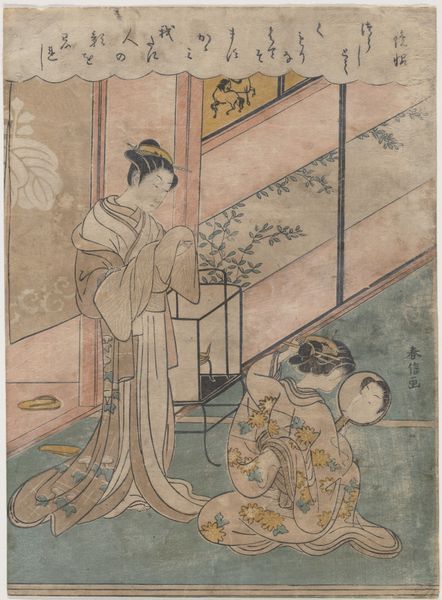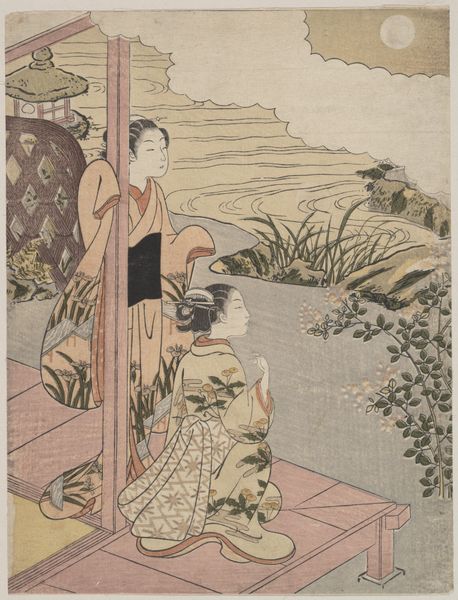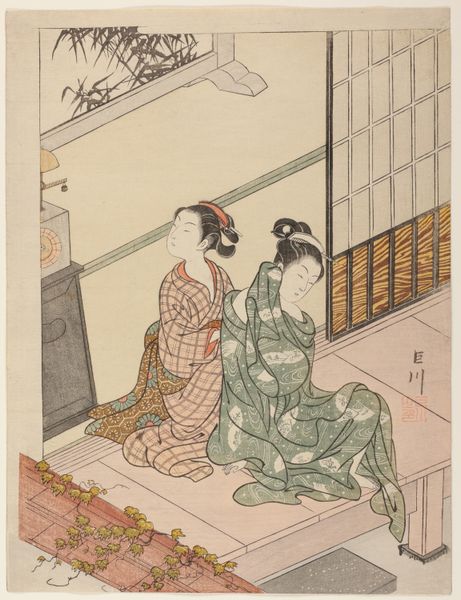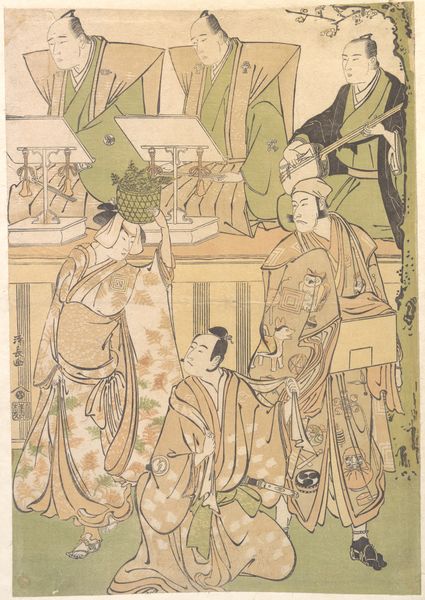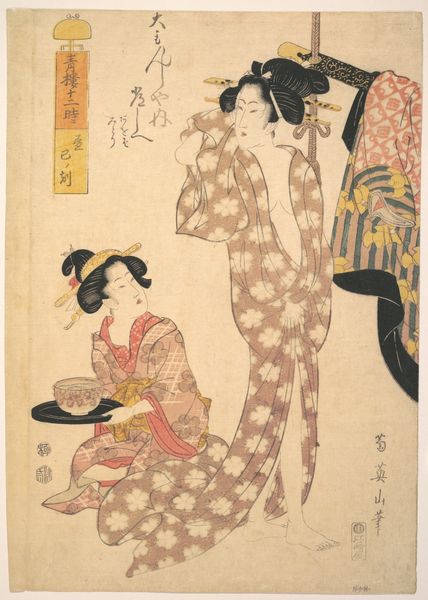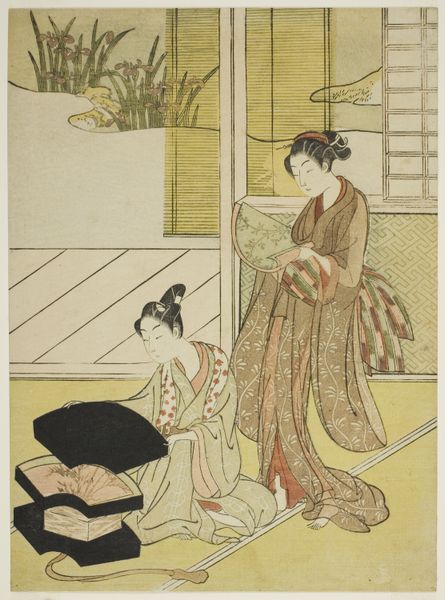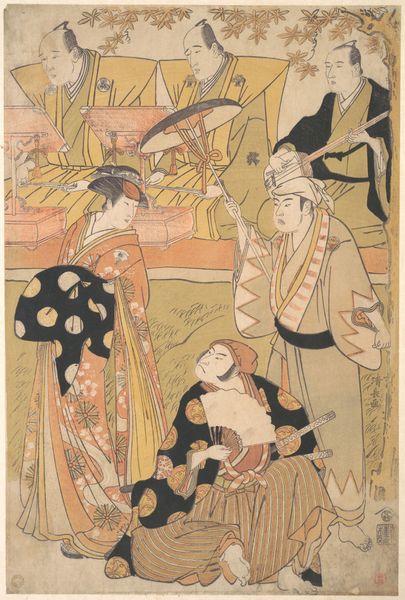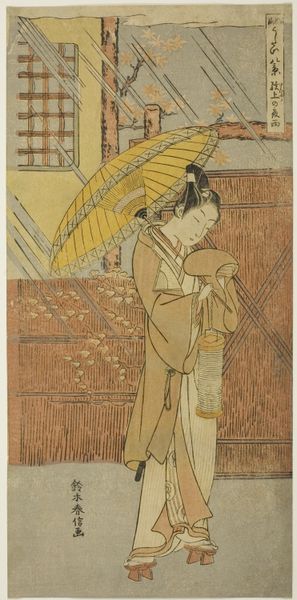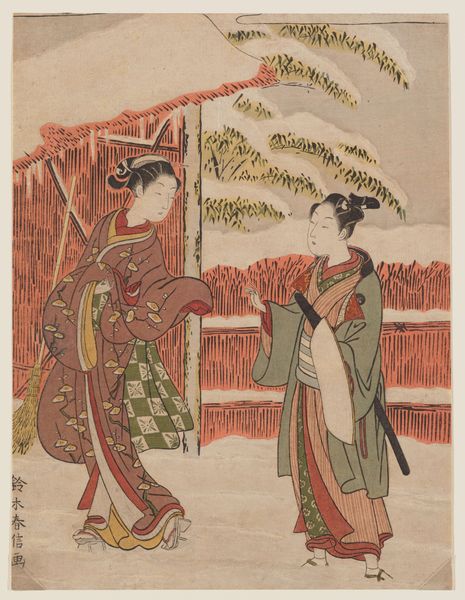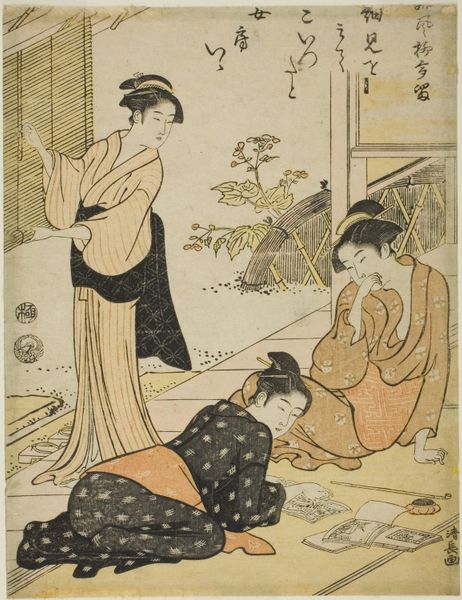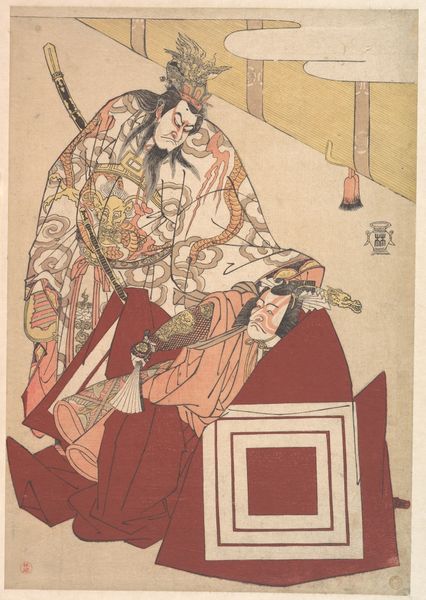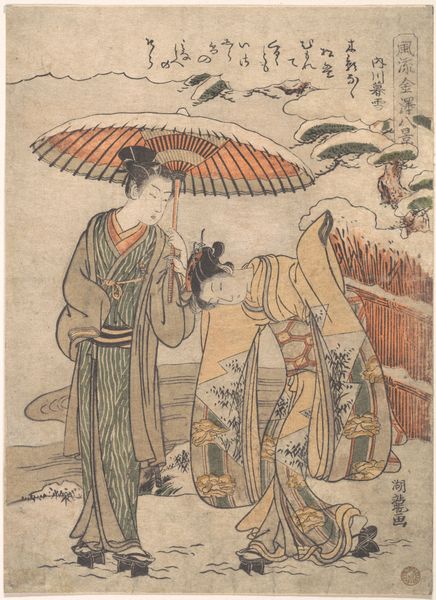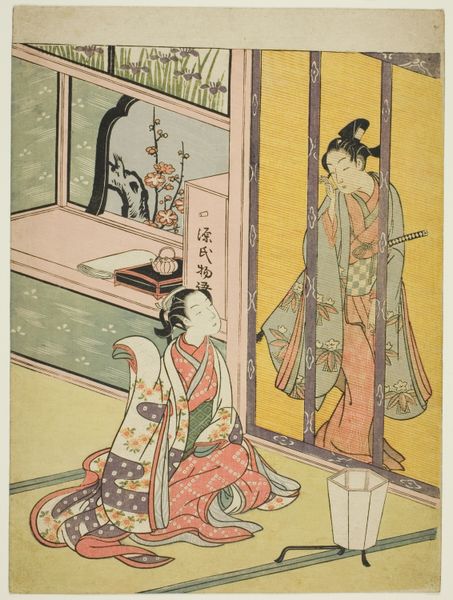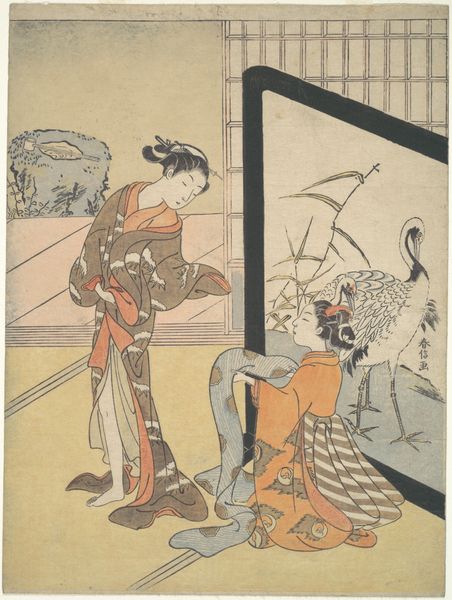
print, woodblock-print
#
portrait
# print
#
asian-art
#
landscape
#
ukiyo-e
#
figuration
#
woodblock-print
#
plant
#
genre-painting
Dimensions: H. 10 3/4 in. (27.3 cm); W. 7 13/16 in. (19.8 cm)
Copyright: Public Domain
Editor: This is "Viewing Iris in the Rain," a color woodblock print by Suzuki Harunobu, created sometime between 1764 and 1770. It's just lovely, so delicate, yet the falling rain conveys a distinct sense of place. What are your initial thoughts when you see this? Curator: My focus immediately shifts to the means of production: the labor-intensive woodblock printing process. Each color requires a separate block, meticulously carved, demanding a high level of skill. The widespread availability of such prints points to significant consumption by a rising merchant class during the Edo period. Editor: So, you're focusing less on the serene beauty and more on... who was buying these, and how they were made? Curator: Precisely! We need to think about the materials – the wood, the pigments – and the social context of their use. Were certain colors or papers more expensive, therefore signalling status? Ukiyo-e prints, originally considered a lower form of art, become fascinating when we look at how the labor and materials involved intersected with social mobility and consumption patterns. Consider, too, the potential commodification of leisure depicted here – leisure afforded by changing economic conditions. Editor: That makes a lot of sense. I was just admiring the artistry, the expressions on their faces and hadn't considered that! Is there anything specific in the print that you see suggesting the consumption piece? Curator: It is not as obvious as it may be in say Western Art during the same era; instead focus on how prints allowed for a visual democratization. What was previously accessible by the few was able to distributed more widely. Editor: Okay, I think I'm understanding the materialist lens better now. I’ll never look at Ukiyo-e prints the same way again! Curator: Excellent! Hopefully I pushed you to start deconstructing those traditional, artist-centric views and look at how materials, labour, and markets are essential.
Comments
No comments
Be the first to comment and join the conversation on the ultimate creative platform.
